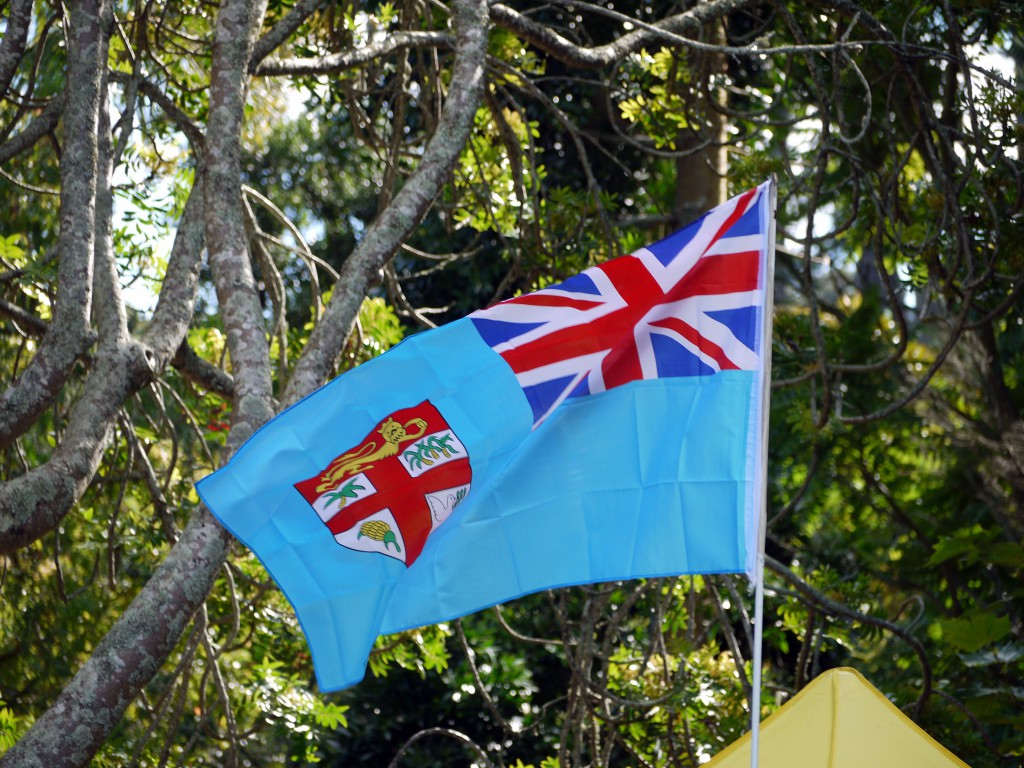 Lost in the din of an election campaign has been a quiet but dramatic change by Australia—and New Zealand—in dealing with Fiji’s military regime. Australia’s then Minister for Foreign Affairs Bob Carr saw the constitution imposed by Fiji’s regime as a step forward, while New Zealand Prime Minister John Key didn’t see it as a ‘deal breaker’.
Lost in the din of an election campaign has been a quiet but dramatic change by Australia—and New Zealand—in dealing with Fiji’s military regime. Australia’s then Minister for Foreign Affairs Bob Carr saw the constitution imposed by Fiji’s regime as a step forward, while New Zealand Prime Minister John Key didn’t see it as a ‘deal breaker’.
There’s every indication that under a Coalition government Australia will seek to continue to cosy up to the Bainimarama government. Already sanctions are being eased. For example, Fiji’s Attorney-General, previously a banned immigrant whose permanent residence status in Australia was revoked, is now a regular if secret visitor. How long before Bainimarama himself is made welcome?
Few Australians are informed of what their government is supporting in their name. Otherwise Canberra would be shamed into adopting a stronger line. Fewer still have any notion of what the Bainimarama constitution actually says and means. An extraordinary degree of power is concentrated in the hands of two people. The Prime Minister and the Attorney-General (who need not be elected) have the authority to appoint—and dismiss—all of the most senior positions in the land. They decide who will be Chief Justice, will appoint judges on fixed term contracts and decide whether or not they can be renewed. They say who will form the public service disciplinary tribunal. And that’s but a taste of what the Bainimarama constitution contains.
All the illegal and oppressive decrees of the last six years are now enshrined in this constitution, including blanket media censorship, regime control of and access to the nation’s savings through its monopoly pension scheme (already pensions have been slashed and the fund used to finance schemes such as the very risky purchase of aircraft), regime control of the police and a political role for the military—which has absolute amnesty for all its crimes committed since 2000.
This constitution was produced after the regime contracted a respected expert Professor Yash Ghai to construct a ‘people’s constitution’; after wide consultation and more than 7,000 publicly available submissions, that is what the Professor duly did. The submissions revealed just how widespread was the disgust in which Bainimarama was held by his own people.
Bainimarama’s response was to burn the people’s constitution and replace it with two people’s constitution—specifically the Prime Minister and the Attorney-General. The document betrays an astonishing confidence that those two people will remain in control after elections in 2014. A study of the emerging electoral rules and procedures (all under the control of the Attorney-General) reveals the reasons for that degree of confidence. For example, the constitution gives control of the electoral process to the appointed Attorney-General, who has already made it clear that voting and counting will be completed in 24 hours, largely by means of counting taking place in remote centres—well away from the prying eyes of observers and party scrutineers, assuming there are any.
The same constitution guarantees freedom of religion while the nation’s largest single church is mercilessly hounded by the regime. It also grants trade union rights at a time when the sugar workers threatening to strike are bullied by the military.
By softening its stance on Fiji, Australia is helping Bainimarama entrench himself as dictator for life.
Russell Hunter is former publisher and editor-in-chief of the Fiji Sun. Victor Lal is an Oxford-based academic researcher and is a former Fiji journalist, author of and human rights ‘Fiji: Coups in Paradise – Race, Politics and Military Intervention’. Image by Flickr user Yortw.

